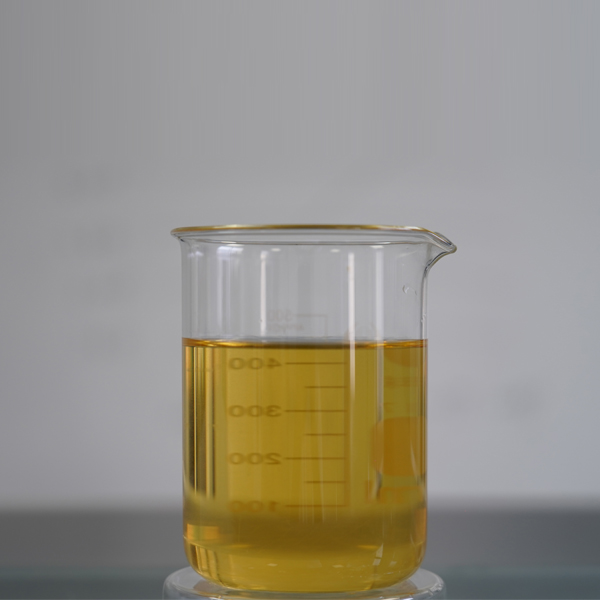
News
Nov . 10, 2024 19:24 Back to list
Granular Fertilizer with Chelated Iron for Enhanced Plant Growth and Soil Health
The Importance of Chelated Iron Granular Fertilizer in Modern Agriculture
In the world of agriculture, ensuring that crops receive the necessary nutrients is paramount for achieving optimal growth and high yields. One of the critical nutrients that plants require is iron, which plays a crucial role in various physiological processes, including chlorophyll synthesis, energy transfer, and nitrogen fixation. However, iron is often not readily available to plants in soil, especially in alkaline conditions. This is where chelated iron granular fertilizer comes into play, revolutionizing nutrient availability and absorption in crops.
What is Chelated Iron?
Chelated iron refers to iron that has been chemically bonded to another molecule, known as a chelator, which prevents it from reacting with other substances in the soil. This bonding process enhances the solubility and stability of iron, ensuring that it remains available for plant uptake. Chelates act as organic compounds that protect iron ions from being trapped in insoluble forms, which can be a common issue in many soils.
Why Granular Formulation?
The granular formulation of chelated iron fertilizers offers significant advantages over liquid forms. Granular fertilizers are easier to handle, store, and apply, making them particularly favorable for large-scale agricultural operations. Furthermore, they have a controlled release characteristic, which can reduce the risk of nutrient leaching and ensure a more sustained availability of iron to plants over time. This controlled release is crucial during critical growth phases when plants are more susceptible to nutrient deficiencies.
Benefits of Chelated Iron Granular Fertilizer
1. Enhanced Nutrient Availability One of the most significant benefits of chelated iron granular fertilizers is their ability to supply iron in a form that is readily accessible to plants. Unlike traditional iron sources, chelated forms can be absorbed efficiently even in high pH soils, which typically bind iron in unavailable forms.
chelated iron granular fertilizer

2. Improved Plant Health Iron is vital for chlorophyll production, and its deficiency can lead to chlorosis, a condition where leaves turn yellow, inhibiting photosynthesis and overall plant health. By ensuring a consistent supply of chelated iron, farmers can prevent these deficiencies, promoting vigorous plant growth and enhancing crop quality and yield.
3. Soil Health and Ecology The use of chelated iron fertilizers can lead to healthier soil ecosystems. By improving plant health and reducing the need for excessive chemical inputs to address nutrient deficiencies, these fertilizers contribute to sustainable agricultural practices. In turn, this helps maintain soil structure, fertility, and microbial activity, all essential for long-term agricultural productivity.
4. Flexibility and Ease of Use Granular fertilizers can be applied using various methods, including broadcasting, banding, or as a top-dressing. This flexibility allows farmers to tailor applications to specific crop needs and soil conditions, leading to more efficient nutrient management.
Application Methods and Considerations
Applying chelated iron granular fertilizer requires consideration of a few factors. The timing of application is critical, as iron uptake can vary during different growth stages. Soil testing can also help determine the existing nutrient levels and pH, guiding appropriate rates of application. Generally, a uniform distribution across the soil surface or incorporating the granules into the topsoil can enhance their effectiveness.
Conclusion
In conclusion, chelated iron granular fertilizers represent a significant advancement in agricultural practices. They not only provide an effective solution to iron deficiencies in crops but also promote sustainable farming by enhancing soil health and minimizing environmental impact. As agriculture continues to face challenges related to nutrient management, climate change, and soil degradation, the role of innovative solutions like chelated iron fertilizers becomes increasingly vital. By harnessing the power of chelation, farmers can ensure that their crops thrive, contributing to global food security and sustainable farming practices. Thus, investing in chelated iron granular fertilizers is a step toward a more productive and sustainable agricultural future.
-
Polyaspartic Acid Salts in Agricultural Fertilizers: A Sustainable Solution
NewsJul.21,2025
-
OEM Chelating Agent Preservative Supplier & Manufacturer High-Quality Customized Solutions
NewsJul.08,2025
-
OEM Potassium Chelating Agent Manufacturer - Custom Potassium Oxalate & Citrate Solutions
NewsJul.08,2025
-
OEM Pentasodium DTPA Chelating Agent Supplier & Manufacturer High Purity & Cost-Effective Solutions
NewsJul.08,2025
-
High-Efficiency Chelated Trace Elements Fertilizer Bulk Supplier & Manufacturer Quotes
NewsJul.07,2025
-
High Quality K Formation for a Chelating Agent – Reliable Manufacturer & Supplier
NewsJul.07,2025
